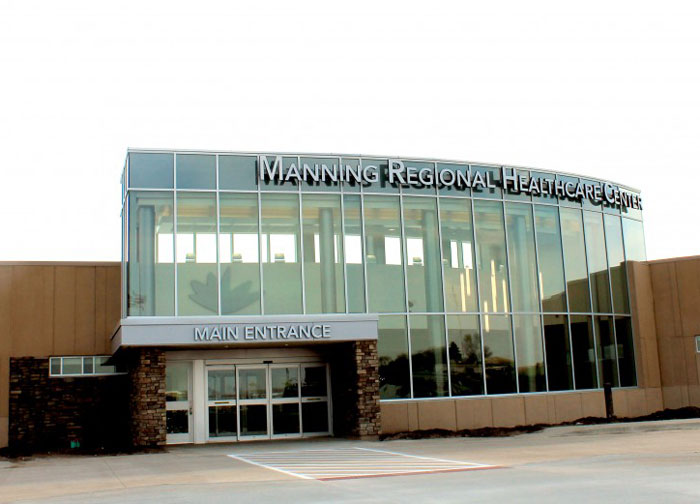The Recovery Center at Manning Regional Healthcare Center offers different levels of care and services depending on you or your loved one’s specific addiction recovery needs. All services and treatment plans are individualized to provide the greatest impact.
Detoxification
For many individuals, detoxification is the first step toward recovery. Detoxification is the process of eliminating all traces of alcohol or drugs from the body while managing withdrawal symptoms. Depending on the severity of drug or alcohol abuse, abruptly quitting certain substances can lead to withdrawal symptoms that can be severe and even life-threatening.
That is why detoxification at the Recovery Center is medically supervised. Just as everyone’s addiction is different, the way an individual’s body reacts and responds to detox can also vary. Therefore, this process can last anywhere from 1 to 5 days. Because the Recovery Center is a department at Manning Regional Healthcare Center, a full-service hospital, all individuals who undergo detoxification are surrounded 24-hours-a-day by an interdisciplinary team of experienced and knowledgeable medical and nursing staff.
Once a patient’s body has stabilized from withdrawal symptoms, a recommended individualized treatment program can be developed.

Residential Treatment
Residential treatment is an intensive rehab program where addicted individuals reside at the Recovery Center for approximately 30 days. Due to our State of Iowa licensing guidelines as a 16-bed facility, the Recovery Center can not exceed 16 individuals admitted to this program on any day. The small number of residents means our staff gets to know people on a personal level, providing extra care and support whenever possible.
All individuals admitted to the residential treatment program are provided medical oversight by highly trained professionals at Manning Regional Healthcare Center. Additionally, residents receive more than 31 hours of service each week along with 2-to-3 individual sessions with licensed counselors. Their individualized treatment plans can include family sessions, family visitations and AA and NA meetings. All residents also have time for daily recreation, including many trips off-site to enjoy activities – such as swimming or bowling – in Manning. If you or a loved one are interested in the Residential Treatment program, please complete the Online Intake Form.
The Concerned Person Program
The Concerned Person Program is a unique component of the residential treatment plan at the Recovery Center. During this program, families can share in their loved one’s group therapy experience on Wednesdays from 5-7:30 p.m. After the group session, family members then have a private meeting with a licensed counselor to better understand their loved one’s experience at the Recovery Center.
Outpatient Treatment
We understand that for some individuals, leaving family, friends or employment for 30 days just isn’t possible. To meet the needs of these individuals working to break free from addiction, the Recovery Center provides outpatient treatment. While the length and structure of the program may be different, the goal is still the same – to help addicts recover and live a drug or alcohol-free lifestyle.
Clients seeking outpatient treatment will need to find transportation to the Manning Regional Healthcare Center in Manning several nights a week to receive therapy with licensed counselors. Individualized programming is developed for each client along with flexibility to meet a client’s family or work needs.
Outpatient treatment generally requires approximately 9 hours a week and can last anywhere from 3 months to more than a year. Clients maintain normal daily routines when not in treatment. If you or a loved one are interested in the Outpatient Treatment program, please complete the Online Intake Form.
Consultation/Evaluation
Staff at the Recovery Center at Manning Regional Healthcare Center can provide a variety of consultations or evaluations related to suspected drug or alcohol abuse upon request. These include:
OWI Evaluations
DHS & School Evaluations
Court-Ordered Evaluations
These evaluations are based on science and used as a tool to determine the extent of a person’s misuse and abuse of drugs or alcohol and assess the extent by which the substance abuse affects the person’s life. Our staff have undergone training to administer these evaluations and properly assess a person for addiction.

